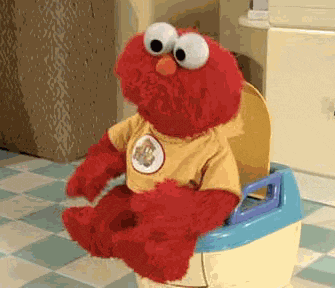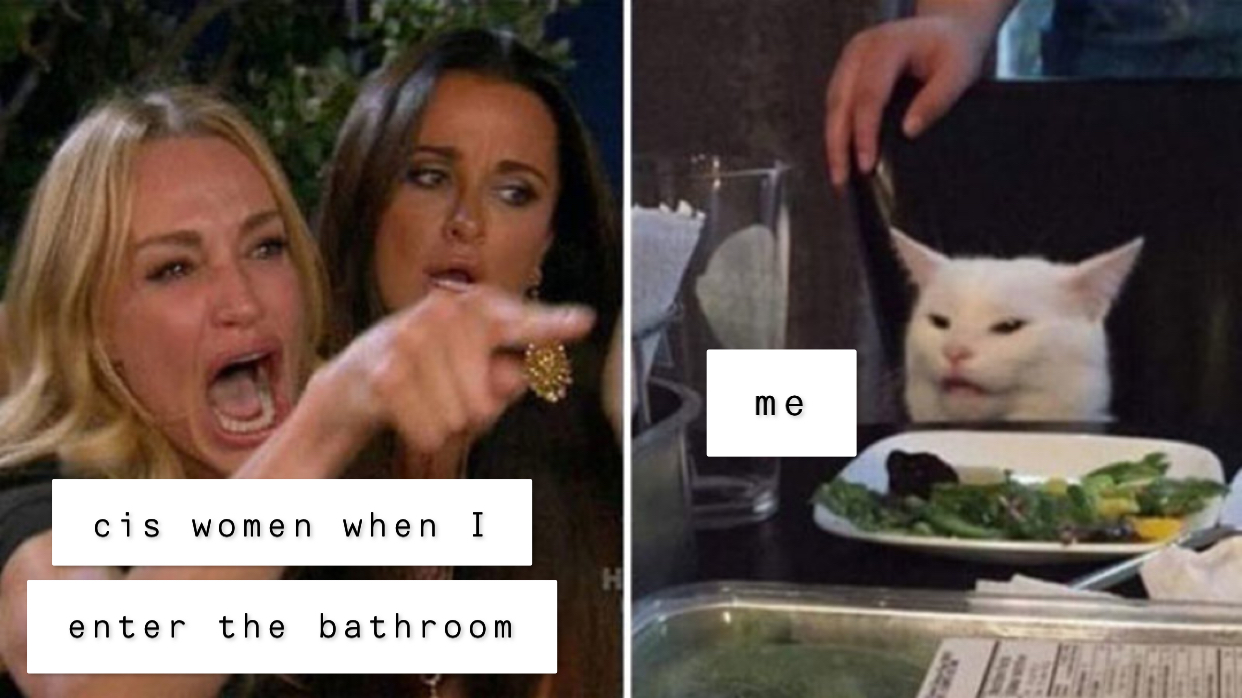Navigating the Women’s Restroom: An Open Letter
 This post is written by Kay, a student staff at the Women’s Center. Kay is a senior Psychology major.
This post is written by Kay, a student staff at the Women’s Center. Kay is a senior Psychology major.
This letter is addressed to a long slew of people. Who, you might ask? Well, that’s a loaded question, but in the interest of time, it’s primarily addressed to the cisgender women (women who identify with the gender that corresponds with their biological sex) who very clearly don’t want me in the women’s bathroom and are visibly uncomfortable or uncertain if I belong.
These women have created so much space in women’s bathrooms for themselves that they have hindered how safe I feel. This letter is not addressed to all cis women, as many of you do accept me for how I present myself, and know that me entering the women’s bathroom shouldn’t be their concern. Even if this letter doesn’t apply directly to you, there is still a lot of important information here to make you a better ally and understand more of the position I and people similar to me are coming from.

I decided to write this letter because I’m tired. It’s exhausting navigating the world as a tall, black, androgynous nonbinary individual, even in a women’s bathroom. In many cases, my mere existence in a women’s bathroom is perceived as a danger to cisgender women. My identities, the essence of my being, are assumed as a threat through the racist, homophobic and transphobic lens of society. Many of my identities come into play in these situations, and they all work interconnectedly and simultaneously: I am black, and have many masculine physical traits; I have short hair, I’m 6’ tall, and I often don’t wear clothes that are associated with femininity. The black masculinity stereotype is portrayed in the media as aggressive and violent, so me being a black person who has identified with masculinity can cause discomfort, especially in a women’s bathroom (link). Queerness and transness also comes with many preconceived notions. Queer and trans folk have been typecasted as perverted and/or as sexual predators. But, cis women, try to remember that I just need to use the restroom and that’s all there is to it. Leave your preconceived notions at the door.
When cis women gatekeep the women’s bathroom, many concepts regarding gender policing come up in discussions about bathrooms. Gender policing can be defined as the act of imposing or enforcing gender roles based on an individual’s perceived sex. This can be done overtly as well as covertly, whether it’s someone saying “I think you’re in the wrong bathroom directly to you” (yes, this has happened), or someone looking confused or worried (see GIF below).

Gender policing can turn violent and endanger people who defy gender norms. These actions and many others tell me and people like me that we are not welcome to exist outside of the gender binary and traditional heteronormative gender roles. This reinforces stereotypes and expectations of gender presentation. Nobody should have to subscribe to some sort of gender standard. Everyone should be able to express themselves without being judged or subjugated against.
Because of these constant negative experiences in the women’s bathroom, I’ve reached the point where running to a public restroom during a road trip, at the mall, even at the movies, becomes an emotional task. So many things go through my head before entering the bathroom:
Will I be stared at?
Will people wonder why I’m entering the women’s bathroom?
Will I face confrontation?
Should I ask my friend to go with me?
People often stare at me when I enter the women’s bathroom and wait for an open stall. Some are visibly uncomfortable with me who up until recently identified as a cisgender woman, and that makes me feel exposed and self-conscious of the way in which I present myself.
One might say that you are all uncomfortable too, and I acknowledge that. I want you to feel as though the bathroom is a safe space for you. But the person who is keeping the bathroom from being a safe space for either of us is you and the stereotypes you have placed on me.

You are, in fact, exhibiting implicit biases based on how I present myself and the assumptions you make of me because of that (see my previous blog for more information regarding microaggressions). How can you be a victim based on the stereotypes you decided to put on me?
In no way do I want anyone to be uncomfortable in the bathroom they decide to go into. I definitely don’t enjoy the discomfort of a bathroom not being presented as a safe space. There are many times I feel as though the women’s bathroom is not for me anymore. Though I was assigned female at birth I don’t identify as a woman. I identify as nonbinary, and for me I don’t feel like I belong in either a woman’s or men’s restroom. But sometimes there’s no other choice. Sometimes the single-stalled all-gender restrooms are dirty, far away, occupied or non-existent. Multi-stall all gender bathrooms are not very common. Even on the UMBC campus, all gender multi-stall bathrooms weren’t available until 2019! Outside of college campuses, they become even less common.
So, to all the people this may apply to, whether you’ve experienced similar instances to me or are one of the many who give people the side eye when they enter the bathroom, I hope you are able to at the very least understand the two concepts listed below:
- My gender identity is none of your concern. There’s no need for you to figure me out. The ways in which I identify shouldn’t matter; no matter how I identify, it doesn’t change the fact that the most comfortable option for me at the time is the women’s bathroom. I’m just using the loo like the rest of you.
- If you are uncomfortable with me, ask yourself why. Your gender policing is showing. Why do I cause you to be uncomfortable? Do those reasons relate to assumptions about me based on how I look and the ways in which I express my identities?
Further Resources:
Article on Black Masculinity Portrayals
Fast Facts about Trans Bathroom Access
Posted: April 8, 2020, 10:54 AM